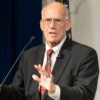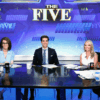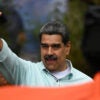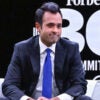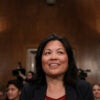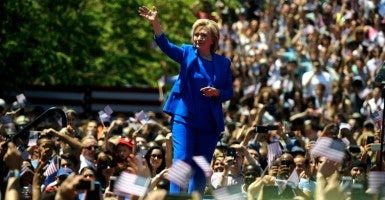ROOSEVELT ISLAND, N.Y.—The theatrics of Hillary Clinton’s campaign relaunch here Saturday—live music, a dance performance, a crowd of nearly 5,500—were carefully choreographed to position the former first lady, senator and secretary of state as a “champion” of everyday Americans.
How did some of these everyday Americans attending the speech at Four Freedoms Park react to Clinton’s message?
For Taylor White, an anesthesiologist in Manhattan, Clinton fit the champion mold perfectly.
“She’s advocating for everybody,” White said.
Dawnette Edwards, an unemployed recent graduate of DeVry University, appreciated Clinton’s advocacy for not only the middle class but the poor as well.
“Normally politicians don’t talk about the poor,” Edwards said.
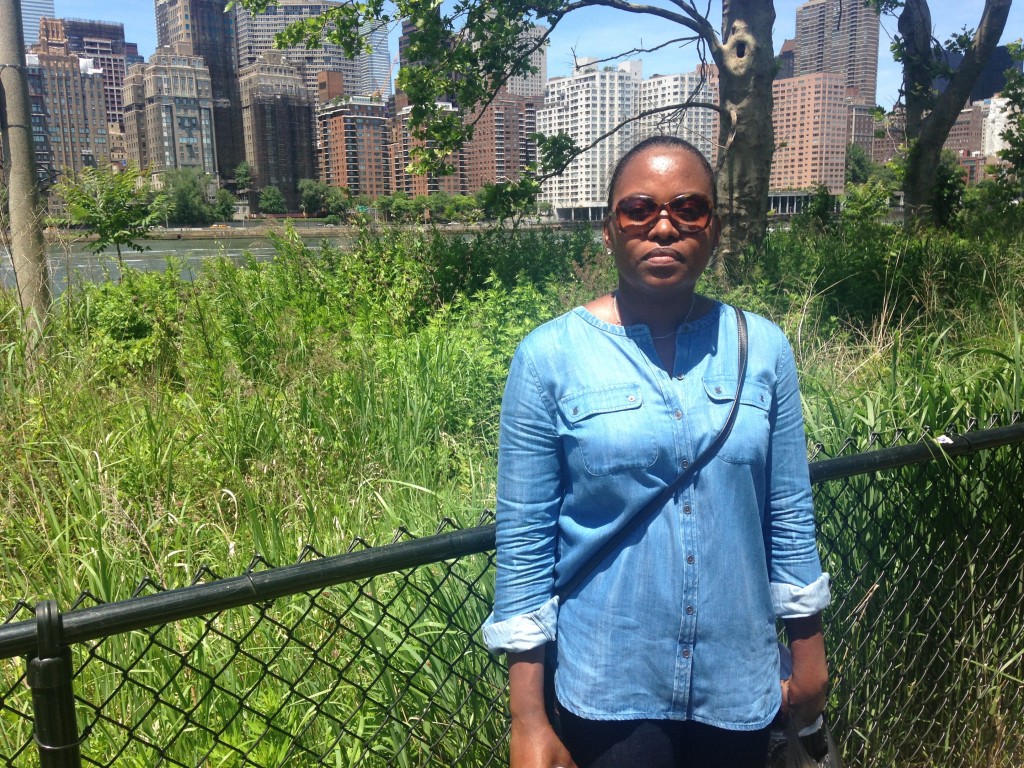
Dawnette Edwards, a 43-year-old from Queens, enjoyed Clinton’s emphasis on bridging the equality gap in America. “Normally politicians don’t talk about the poor,” she said. (Photo: Alec Siegel)
Some attendees, however, need to hear more before crowning Clinton their champion.
“I like what she had to say, but what else is there?” asked Anthony Moran, a 52-year-old Roosevelt Island resident.
Jeff from Queens (he declined to give his last name and occupation) was disappointed not in what Clinton said but what she didn’t say.
“As far as I’m concerned, she made a beautiful speech, but she wasn’t sincere,” he said.
In an attempt to connect with the struggles that face the everyday Americans in the crowd, Clinton fleshed out her own family story.
She talked of her grandfather, who worked at a Scranton, Pa., lace factory for 50 years, and her mother, who was left parentless at 14, making ends meet by cleaning houses.
“Everyday Americans need a champion. And I want to be that champion,” Clinton said when she announced her bid for president in April.
In an hour-long address at Four Freedoms Park—named after President Franklin D. Roosevelt’s “four freedoms” (of speech, of worship, from want and from fear) in his 1941 State of the Union address—Clinton reiterated that ambition. She promised to fight for “the innovators and inventors, the factory workers and food servers” and “everyone who has ever been knocked down, but refused to be knocked out.”
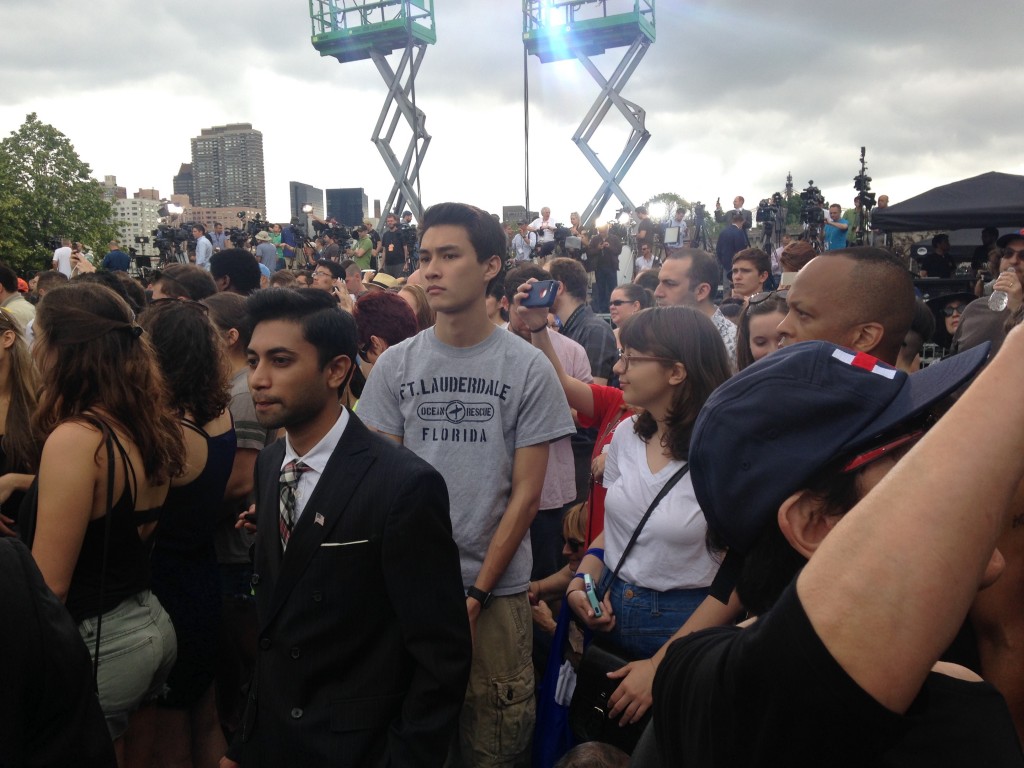
Storm clouds threatened early as the crowd of an estimated 5,500 waited for Hillary Clinton to give her official campaign opening speech. (Photo: Alec Siegel)
White, the anesthesiologist who donned a Hillary for America baseball cap, finds Clinton’s “four fights”—for economic issues, family issues, global issues and government issues—the perfect platform to run on in today’s increasingly polarized climate.
“She really does want to see the middle class succeed, and see the people that are having a tough time pull themselves up,” he said, before cautioning, “It’s going to take more than Hillary Clinton to take centrist ideas that can move through Washington and affect people.”
Clinton told the crowd she might not be the youngest candidate running for president, but jokingly promised she would be “the youngest woman president.” The line received enthusiastic applause from the flag-waving crowd.
While it certainly is a plus for the unemployed Edwards that the next leader of America might be a woman, it’s not the defining quality of Clinton’s campaign.
“I like that she talked about equality not just for women, but for men,” she said, adding that she supports Clinton not because she’s a female, but because she has “a good platform and agenda.”
The platform that Clinton outlined on a stage designed in the image of her campaign logo was wide ranging, promising to fight for equality for people from all walks of life. The speech contained broad outlines of her vision for small businesses that focus on “long-term value, not short-term profit.” She shared her wish to make the economy an inclusive one, for all Americans, not just those at the top. Details, she said, are to come in the following weeks.
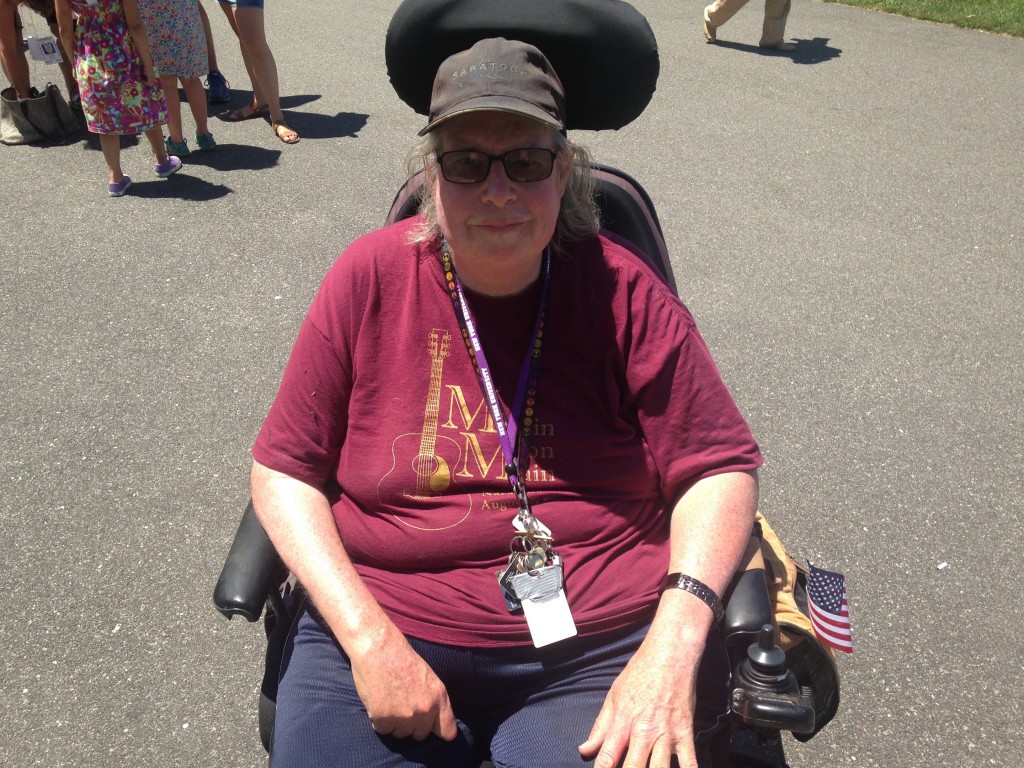
Anthony Moran, a 52-year-old Roosevelt Island resident, came away from the speech wanting more. “What else is there?” he asked. (Photo: Alec Siegel)
For Anthony Moran, who watched Clinton speak from his wheelchair, the real test will come in the debate portion of the campaign, when lofty rhetoric from both sides is scrutinized by pointed questions and a demand for answers.
“We need to see a lot more,” Moran said. He’s hoping for more substance once the Republican and Democratic tickets on either side have been solidified next year.
“Who on the other side is good? Put the two of them together and we’ll find out,” he said.
At the end of her speech Saturday, Clinton alluded to her recent stumbles, albeit without mentioning any of them directly. In March, she acknowledged sending work-related messages through a private email account as secretary of state. Then in May, author Peter Schweizer documented the Clinton Foundation’s failure to disclose the source of some of its donations.
“I’ve made my share of mistakes,” she said. “Well, there’s no shortage of people pointing them out.”
Clinton said she’s a leader who will persevere through adversity. While many people have called her many things, she said, “quitter is not one of them.”
To Jeff, who came alone from Queens on Saturday, eager to hear what Clinton had to say, her simply acknowledging past mistakes was hardly enough.
“If you’re running for president, and you dirty yourself with your own hands, you need to be sincere about that and admit that you made a mistake,” he said. “People can see that sincerity in you. And she wasn’t sincere in that.”
Throughout the morning, popular songs by Pharrell Williams and Taylor Swift played from giant speakers. The Brooklyn Express Drumline performed. Echosmith, a Los Angeles-based band, performed a few of its hits. When Clinton took the stage, she did so to Sara Bareilles’ song, “Brave.”
Jeff saw the spectacle aspect of the event as “playing to the crowd.” But when the performances concluded and the music died down, Clinton walked up to the microphone in her trademark bright blue pantsuit to address her supporters. At that point, she was their champion.
